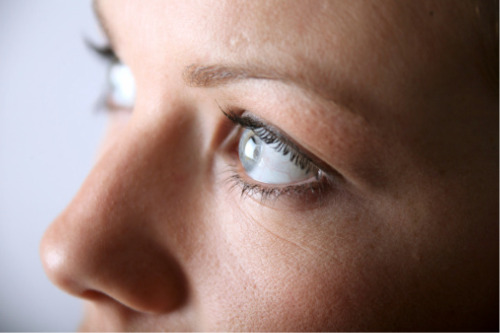DLC's Sarah Makhomet remembers another instance when calamity brought life to a halt

Like many Ukrainians, Dominion Lending Centres’ Sarah Makhomet was a child when the number four reactor at the Chernobyl Nuclear Power Plant went down, sparking the worst nuclear disaster in human history. While the death toll from Chernobyl and the global economic fallout both pale in comparison to today’s COVID-19 pandemic, the lingering uncertainty and tension we’re all now living under are familiar territory to Makhomet.
With Chernobyl, the worry was that a large part of the Soviet Union would be uninhabitable for decades, if not forever. With COVID-19, the long-term prognosis is an eventual return to normal. It’s a distinction that has helped Makhomet maintain perspective during the pandemic.
“I’ve gone through different challenges in my life. By now I’ve seen so many different things happen that I feel like I’m mentally prepared for [COVID-19],” she says. “For many Canadians, this is the first time in their lifetimes that they are facing something like this.”
As radiation spread across Ukraine, it rained down on a nation that was wholly unprepared to mitigate a crisis of such magnitude. The available information was spotty at best, blatantly untrue at worst. There was no financial help for Ukrainians. There was no bailout for businesses. (Being pre-Russia, there were no private businesses to bail out – or to have step in and provide assistance.)
Say what you will about the federal government’s response to COVID-19, there’s food on the shelves and mortgage relief for borrowers.
“That’s a massive help to the Canadian people that I think most of the world doesn’t have access to,” Makhomet says.
Other disturbing parallels exist between the two crises – a lack of necessary equipment for those called on to work the frontlines, a blizzard of conflicting information, reputedly stable societies falling into disarray in a matter of days – but Makhomet, who also endured the collapse of the Soviet Union in 1991, chooses to focus on what can be learned and improved upon when the world turns temporarily upside down.
“I actually think this is a good way for people to have a check on reality,” she says. “Where are our finances at? Where’s our business at? Where’s our family at? Where’s our mental health at? We were so on autopilot that we never actually looked at any of this.”
With worldwide cases of COVID-19 sitting at just over 814,000 at midday on Tuesday, mortgage professionals and their clients will surely be expected to keep their distance for at least another two weeks. But there’s an end coming, one in which the vast majority of us will survive – not only with our health, but with a new perspective.
“It only makes you stronger,” says Makhomet. “It makes you understand you can overcome anything.”



